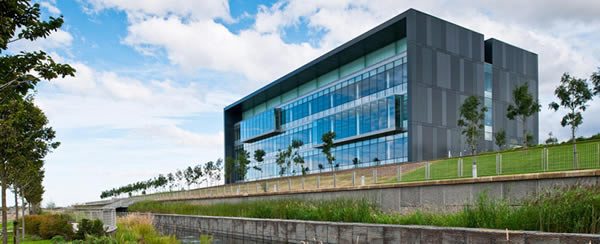Aquila BioMedical is an innovative preclinical contract research organization that offers clients world leading research expertise in Immuno-Oncology, Immunology and Regeneration. Bespoke services combine advanced models with protocolled techniques, to provide high-value data, defining both efficacy and the mechanism of action of drug candidate compounds. A key feature of the Aquila offering is the partnering of services with world-leading academics to provide expert advice and interpretation of the data. Aquila BioMedical was created in 2011 by academics from The University of Edinburgh working with the Entrepreneur-in-Residence. The concept of the company was to offer a portal to deliver academic models (not readily available through other CROs) under industrial conditions, coupled with the input from the relevant academic expert in the field. Academics are actively encouraged to consider the translational relevance of their research and are open to consultation for contract research purposes. This provides an attractive platform for a unique drug development experience.
Aquila BioMedical has laboratory and office space in Number Nine, the bioincubator building situated at the Little France campus, with The University of Edinburgh’s Medical School, Centre for Inflammation Research, the Anne Rowling Regenerative Neurology Clinic, the Scottish Centre for Regenerative Medicine and Edinburgh Royal Infirmary within easy reach.

Aquila’s particular focus is on immune cell function and interplay of cells in the tumour microenvironment. Aquila has a suite of validated services which can be specifically tailored to provide high-value data, defining both efficacy and the mechanism of action of drug candidate compounds. Bespoke services combine advanced models with protocolled techniques, to provide high-value data, defining both efficacy and the mechanism of action of drug candidate compounds. A key feature of the Aquila offering is the partnering of services with world-leading academics to provide expert advice and interpretation of the data.
Although still in its infancy, immunotherapy has been yielding some promising clinical data from checkpoint modulators. In 2011, ipilimumab, a fully human monoclonal antibody which blocks cytotoxic T-lymphocyte-associated antigen-4 (CTLA-4), became the first agent approved in the EU for the treatment of adult patients with un-resectable or metastatic melanoma. More recently, Nivolumab, an immunomodulatory that blocks the activation of program cell death 1 (PD-1), was approved also for metastatic melanoma.
Aquila has extensive Immunology experience which can be specifically tailored for Immuno-Oncology projects.The suite of services includes: • An Exhausted CD4+ T cell assay, • Human PBMC & T cell activation assays, • Human Mixed Lymphocyte Reactions, • Human DC, Macrophage and Co-culture assays, • T cell killing assay All relevant to investigating compound mechanism of action for cancer immunotherapy.
Endorsement by Paul Rennert, CEO of SugarCone Biotech an IO Key Opinion Leader: “The immune checkpoint space was until recently devoid of really focused CRO activity, that is, having diverse modelling capability and careful benchmarking. However, Aquila BioMedical in Scotland, UK placed a solid bet on developing these capabilities around a year ago, and that effort is yielding a terrific suite of assays in both mouse and human cell systems, with multiple readouts, solid antibody benchmarking and careful controls. I like this very much, rich in functional data in a way that a binding assay simply can’t reproduce. Aquila BioMedical seeks to become a driving force in this area, and I like their chances very much.” (www.sugarconebiotech.com)


